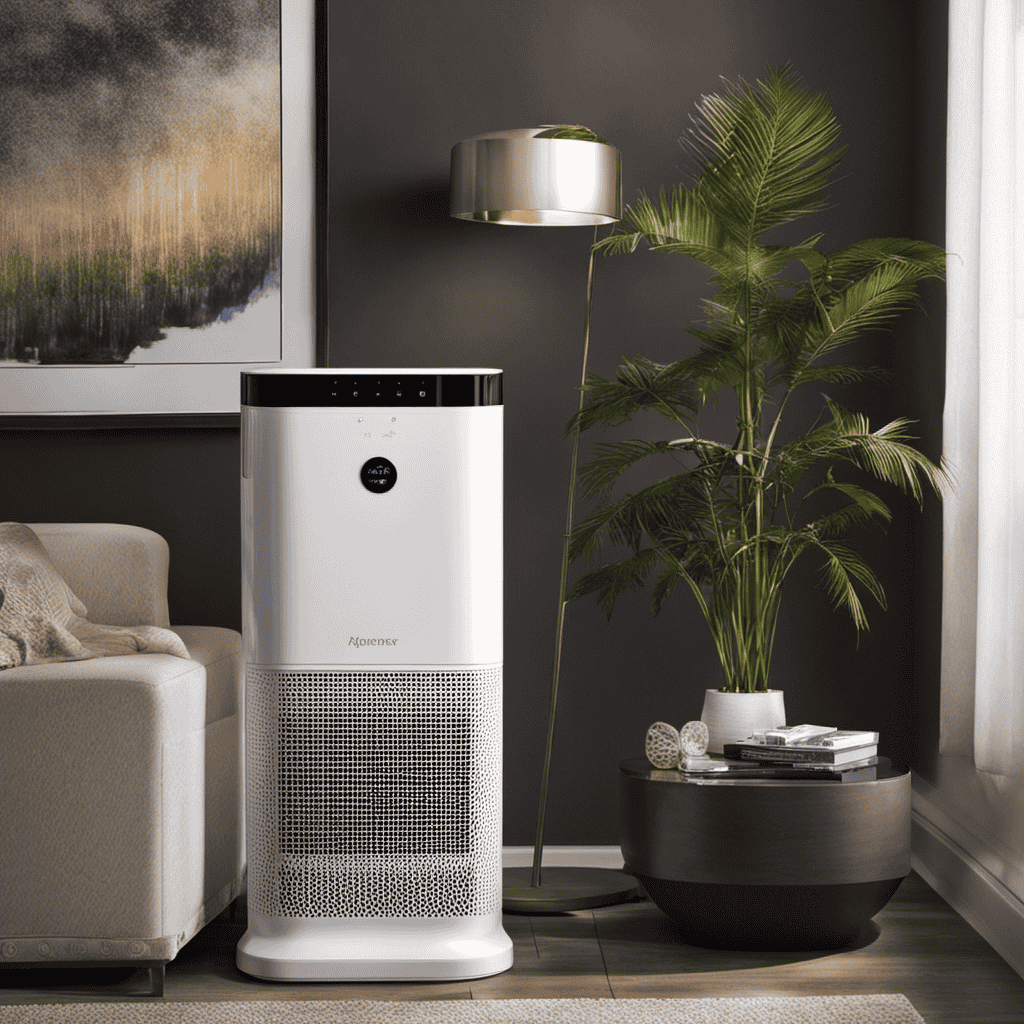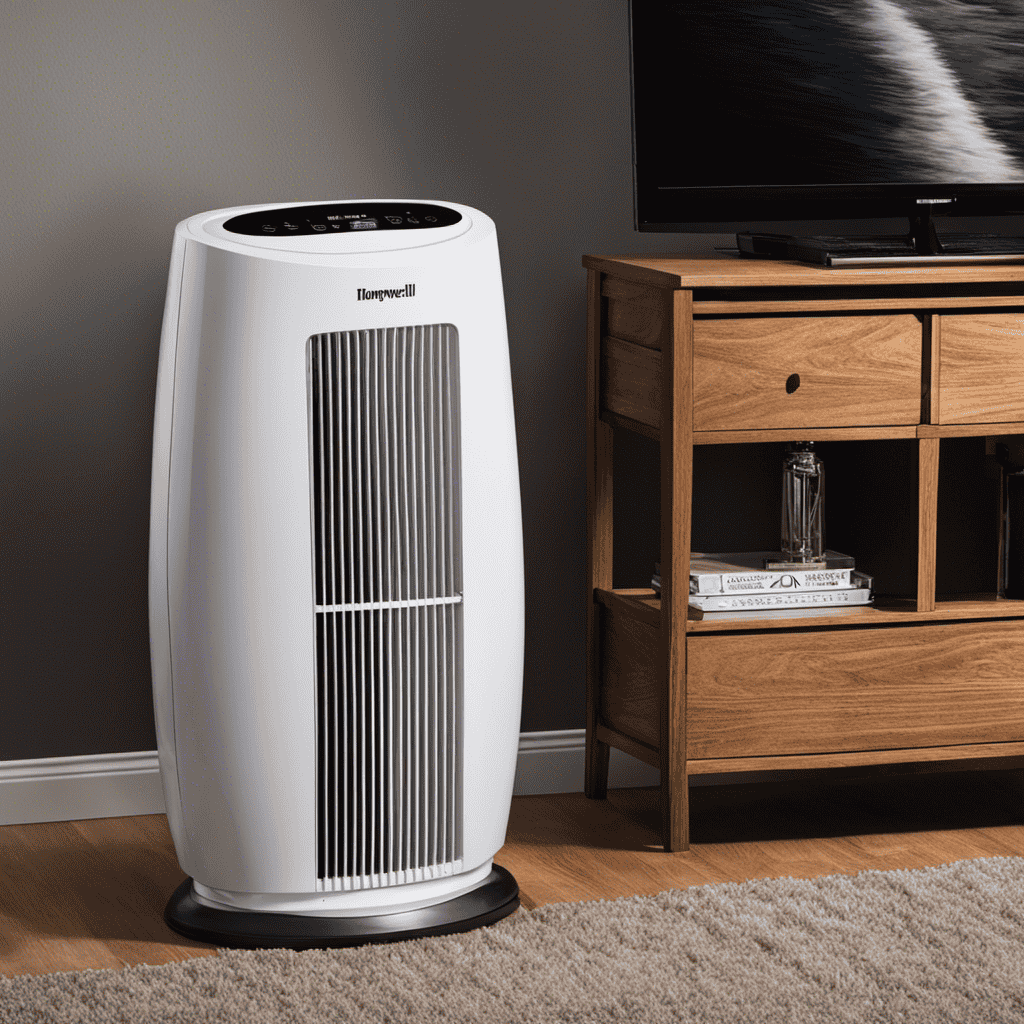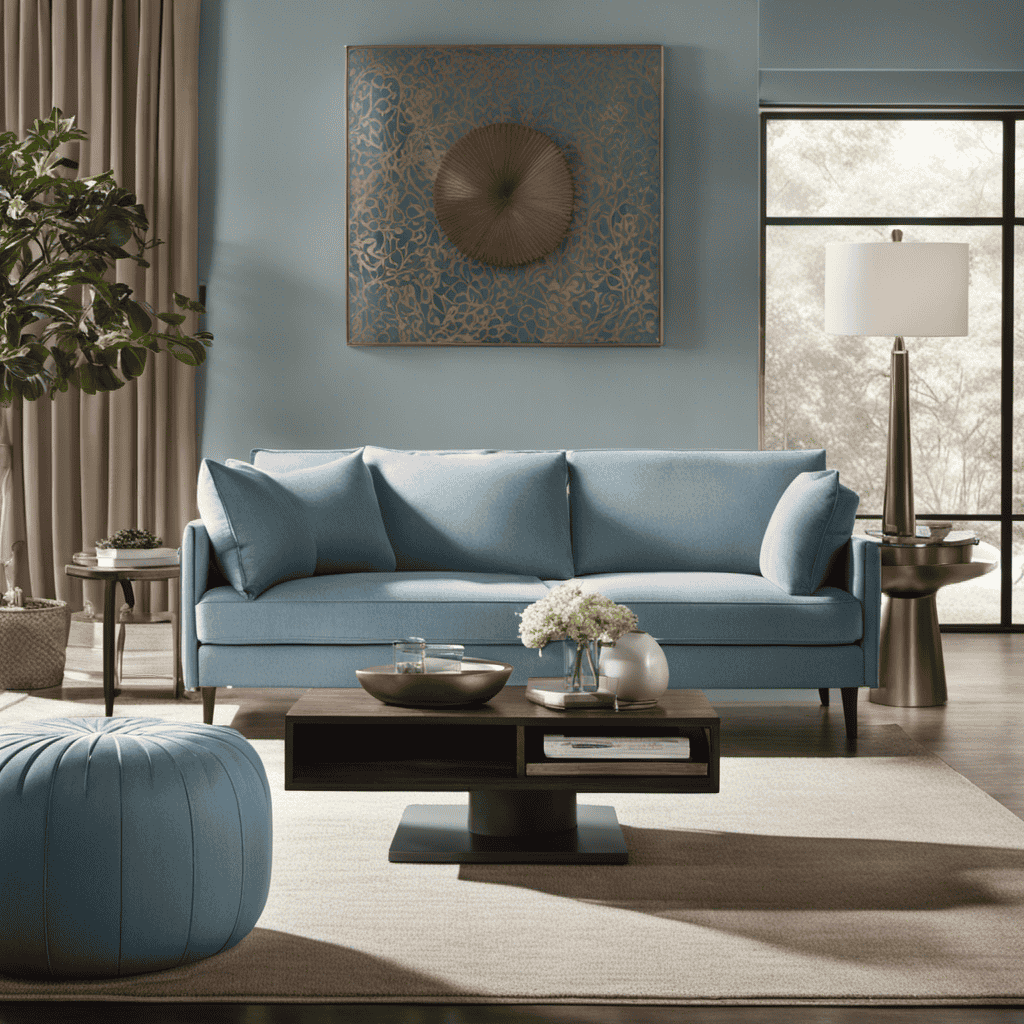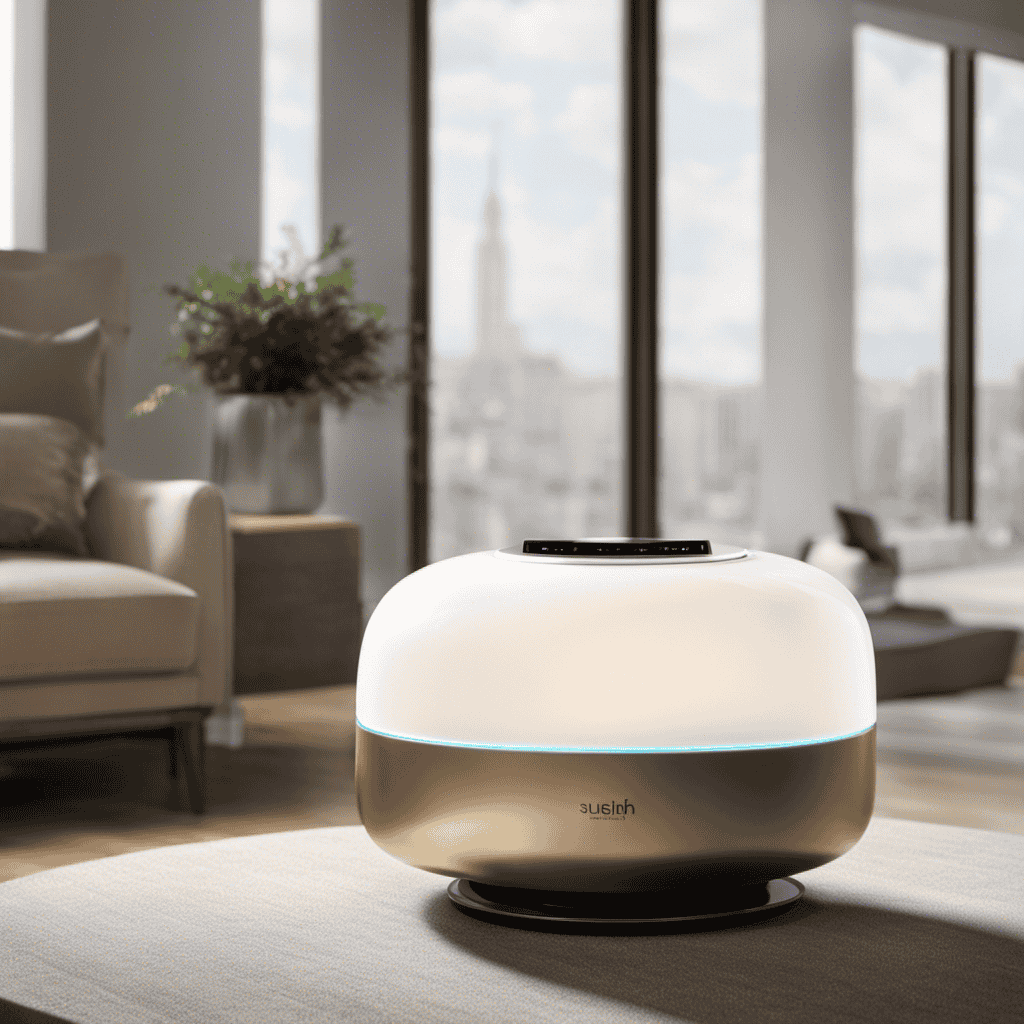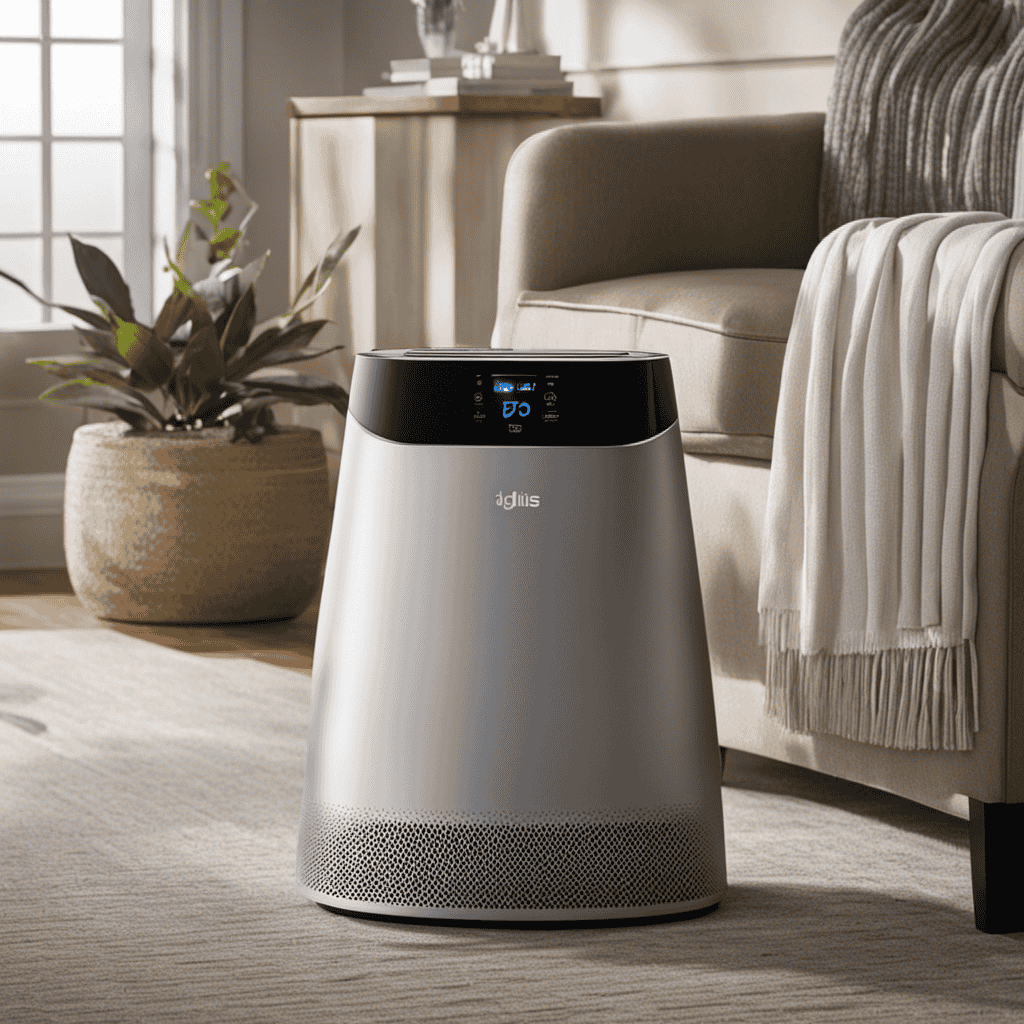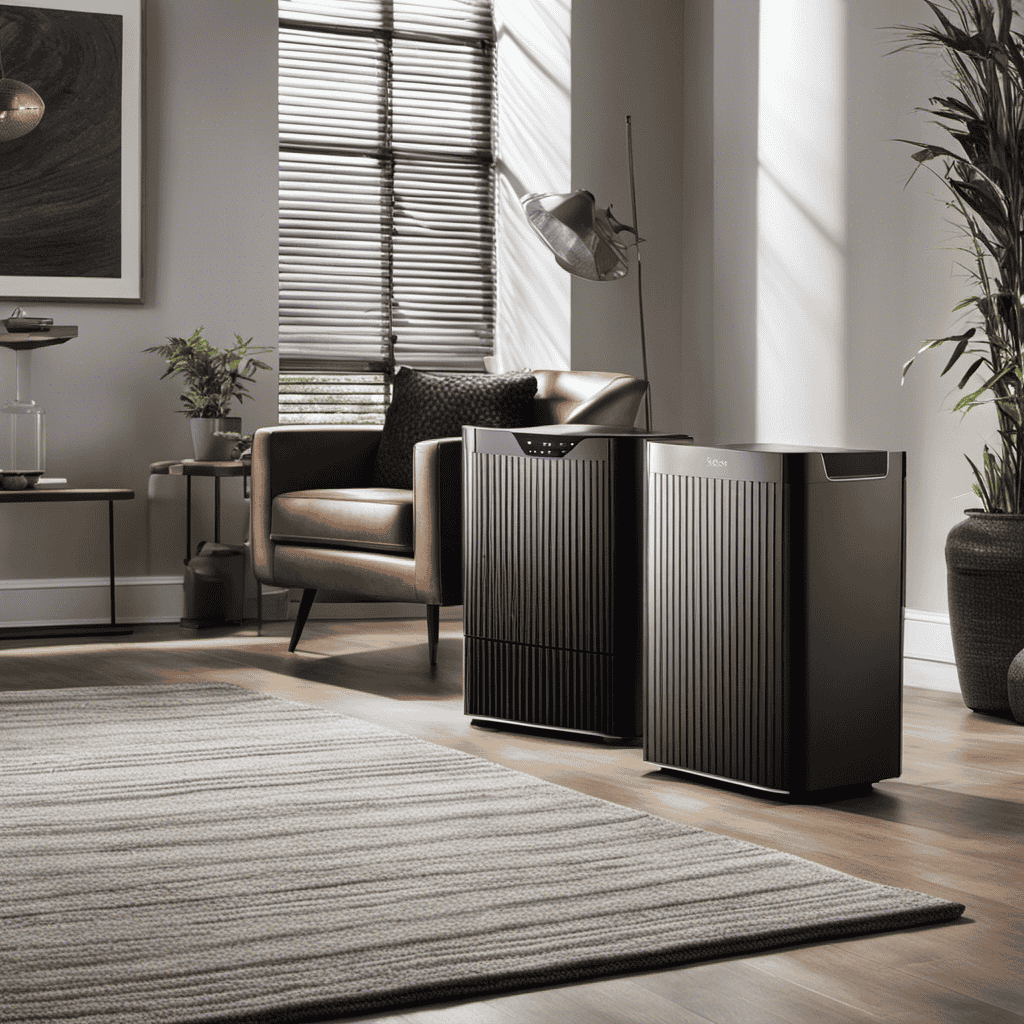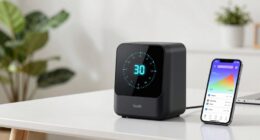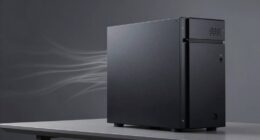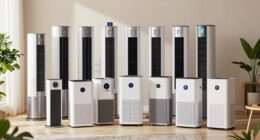As someone who prioritizes clean and healthy indoor air, I have frequently pondered the debate between air purifiers and air ionizers. This is a common dilemma for those seeking to enhance the air quality within their homes.
In this article, I will explore the key differences between these two devices, weighing the pros and cons, and discussing the factors to consider when making a choice.
With an evidence-based and objective approach, we will delve into the effectiveness and cost comparison of air purifiers and air ionizers.
Let’s uncover the truth and make an informed decision together.
Key Takeaways
- Air purifiers use filters to trap and remove particles from the air, while air ionizers emit negative ions into the air, causing particles to fall to the ground.
- Air purifiers can remove a wide range of pollutants and improve indoor air quality, while air ionizers can eliminate airborne pollutants and reduce allergens.
- Air purifiers require regular filter replacements, which can be costly, while air ionizers do not require filter replacements and are generally more affordable.
- Some studies suggest that ionizers may produce harmful ozone levels, while air purifiers are generally more efficient at improving indoor air quality.
Key Differences Between Air Purifiers and Air Ionizers
If you’re trying to decide between an air purifier and an air ionizer, it’s important to understand the key differences between the two.
Air purifiers work by using filters to trap and remove particles from the air, such as dust, pollen, and pet dander. They can also remove odors and harmful gases. The advantages of air purifiers are that they are effective at removing a wide range of pollutants and can improve indoor air quality.
On the other hand, air ionizers work by emitting negative ions into the air, which attach to particles and cause them to fall to the ground. The benefits of air ionizers include their ability to eliminate airborne pollutants and reduce the presence of allergens.
However, it’s important to consider the pros and cons of air purifiers and air ionizers to determine which option is best for your specific needs.
Pros and Cons of Air Purifiers and Air Ionizers
The pros and cons of air purifiers and air ionizers should be considered before making a decision.
Both devices have their advantages and disadvantages.
Air purifiers are effective in removing particles such as dust, pollen, and pet dander from the air, improving indoor air quality. They can also help alleviate symptoms of allergies and asthma. However, air purifiers require regular filter replacements, which can be costly.
On the other hand, air ionizers work by releasing negative ions into the air, which attach to particles and make them fall to the ground. They do not require filter replacements and are generally more affordable. However, some studies suggest that ionizers may produce harmful ozone levels, which can be detrimental to health.
It is important to carefully consider these factors and choose the device that best suits your needs.
Factors to Consider When Choosing Between Air Purifiers and Air Ionizers
When deciding between air purifiers and air ionizers, it’s essential to consider various factors. Both options have their pros and cons, but ultimately, your decision should be based on your specific needs and preferences.
Here are a few factors to consider:
-
Air Quality Standards: Look for air purifiers or ionizers that meet the industry standards for air quality, such as HEPA filters for removing particles or ozone emission limits for ionizers.
-
Health Benefits: Consider the specific health benefits you are looking for. Air purifiers are great for removing allergens, dust, and pet dander, while ionizers are effective at neutralizing odors and killing bacteria and viruses in the air.
-
Maintenance and Cost: Take into account the maintenance requirements and associated costs of each option. Air purifiers typically require filter replacements, while ionizers might require occasional cleaning.
Effectiveness of Air Purifiers Versus Air Ionizers in Removing Airborne Contaminants
One important factor to consider is how effective each option is at removing airborne contaminants.
When comparing air purifiers and air ionizers, it is crucial to assess their effectiveness in improving indoor air quality.
Multiple studies have shown that air purifiers are highly effective at capturing and removing airborne particles such as dust, pollen, pet dander, and mold spores. These devices use filters to trap contaminants, preventing them from recirculating in the air.
On the other hand, air ionizers work by emitting negative ions that attach to airborne particles, causing them to become heavy and fall to the ground. However, the effectiveness of air ionizers in removing contaminants is limited, as they do not physically capture particles like air purifiers do.
Therefore, when it comes to the effectiveness comparison, air purifiers are generally more efficient at removing airborne contaminants and improving indoor air quality, which can have significant health benefits for individuals with allergies, asthma, or other respiratory conditions.
Cost Comparison: Air Purifiers Versus Air Ionizers
To make an informed decision, you should consider the cost difference between air purifiers and air ionizers. When comparing the two, it is important to consider their energy consumption and maintenance requirements.
Here is a breakdown of the cost comparison:
-
Energy Consumption:
-
Air purifiers typically consume more energy than air ionizers. This is because air purifiers use fans and filters to circulate and clean the air, requiring more power to operate.
-
Air ionizers, on the other hand, use ionization technology to charge particles in the air, which requires less energy.
-
Maintenance Requirements:
-
Air purifiers often require regular filter replacements, which can be costly over time. These filters need to be replaced every few months or so, depending on usage.
-
Air ionizers, on the other hand, do not require filter replacements. However, they may require occasional cleaning to remove any buildup of charged particles.
Considering both energy consumption and maintenance requirements can help you make a more informed decision based on your budget and preferences.
Is an Ionizer Air Purifier Better Than a Regular Air Purifier?
An ionizer air purifier is different from a regular air purifier because of what ionizer air purifier does. While a regular air purifier uses filters to trap particles, an ionizer air purifier releases charged ions to remove pollutants from the air. This can be more effective in removing smaller particles and odors.
Frequently Asked Questions
Are Air Purifiers and Air Ionizers Safe to Use Around Children and Pets?
Air purifiers and air ionizers can be safe around children and pets if proper safety precautions are followed. It’s important to compare their effectiveness in improving indoor air quality before making a decision.
Can Air Purifiers and Air Ionizers Help With Allergies and Asthma?
Air purifiers and air ionizers can be beneficial for improving overall air quality and reducing allergies and asthma symptoms. HEPA filters are effective at capturing pollutants, while electrostatic precipitators use an electrical charge to trap particles.
How Often Do Air Purifiers and Air Ionizers Need to Be Cleaned or Maintained?
Air purifiers and air ionizers require regular cleaning and maintenance to ensure optimal performance. This includes cleaning the filters, removing dust and debris, and checking for any malfunctions. Regular maintenance is essential for both air purifiers and air ionizers to effectively clean the air.
Can Air Purifiers and Air Ionizers Eliminate Odors From Cooking or Smoking?
I can’t believe how well my air purifier eliminates cooking smells and smoking odors. It’s like magic! I don’t have to worry about any unpleasant odors lingering in my home anymore.
Are There Any Potential Health Risks Associated With Using Air Purifiers or Air Ionizers for Extended Periods of Time?
There may be potential side effects and long-term effects associated with using air purifiers or air ionizers for extended periods of time. It is important to research and consider these factors before making a decision.
Conclusion
After thoroughly examining the key differences between air purifiers and air ionizers, as well as considering their pros and cons, it is clear that air purifiers are the superior choice.
They are highly effective in removing airborne contaminants, providing cleaner and healthier air for your home. In fact, studies have shown that air purifiers can reduce indoor air pollution by up to 99%.
This is like a breath of fresh air, ensuring that you and your loved ones can enjoy a safe and comfortable living environment.
Don’t compromise on your health, choose an air purifier today.
